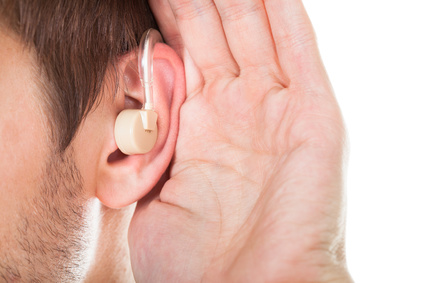This entry was posted on Wednesday, April 20th, 2016 and is filed under Blog by AENT Associates
A recent study by the National Institute on Aging shows that individuals suffering from hearing loss are more likely to develop Alzheimer’s disease and Dementia. Hearing loss is a common, but life-altering problem, and therefore, those who observe any decline in their hearing ability, must not waste any time in seeking a treatment. Hearing loss cures greatly vary, depending on a number of factors such as severity, the type of hearing loss, patient’s lifestyle, age, exposure to loud noise, and preexisting medical conditions.
Let’s take a look at the different types of hearing losses and their treatments.
Conductive or Temporary Hearing Loss
Conductive hearing loss occurs due to any condition or disease that obstructs transmission of sound signals through the middle ear cavity to the inner ear. It can be the result of a blockage in your external ear canal or any disorder that adversely affects the capability of the middle ear to convey the mechanical energy to the stapes footplate. This blockage may be due to earwax build-up, a perforated eardrum or fluid in the middle ear. Conductive hearing loss, therefore, is the result of a decline in the intense energy reaching the inner ear.
Treatment
This type of hearing loss is can be treated by medications and surgical procedures. In cases where either medical or surgical treatment proves to be inappropriate, patients of conductive hearing loss may find help in hearing aids, cochlear implants, and special devices such as bone-anchored hearing aids (BAHA).
Sensorineural or Permanent Hearing Loss
Sensorineural hearing loss is the result of auditory nerve dysfunction. The sensory component of the Sensorineural hearing loss may be an outcome of damage caused to the organ of Corti – a metabolic problem in the fluids of the inner ear or the failure of the hair cells to stimulate the nerves of hearing. The neural component can be the result of a serious damage to the organ of Corti that causes the nerves of hearing to degenerate, or the inability of the hearing nerves to transmit neurochemical information via the central auditory pathways.
Treatment
Patients with sensorineural or permanent hearing loss should seek a cure from a reputed hearing healthcare provider. Once medical treatment fails to treat sensorineural hearing loss, amplification through hearing aids serves as a remedy for this kind of hearing loss. Most cases of sensorineural hearing loss can be improved using hearing aids.
Hearing Aids
Hearing aids often prove to be a viable solution in case where medical treatments fail to deliver. If effective, hearing aids can significantly improve the hearing capability, allowing patients to communicate with ease and lead a normal life.
Cochlear Implants
A cochlear implant is typically a tiny electronic device often recommended to patients suffering from partial or total hearing loss. The implant sidesteps the pathways of hearing to directly stimulate the auditory nerve, generating a signal that travel through the auditory nerve to the brain that, in turn, identifies the signal as a sound.
Last Few Words
If you or someone you know is suffering from temporary or permanent hearing loss, it is pointless to prolong the agony. Consult our audiology experts to learn more about the various type of hearing loss and possible hearing loss cures, by calling us at (713) MY-SINUS. To book an appointment with one of our audiologists, fill out this form , or click here to learn more about our audiology services.
Tags: Cochlear Implants, Hearing Aid, Hearing Loss, Hearing Loss Treatmen


